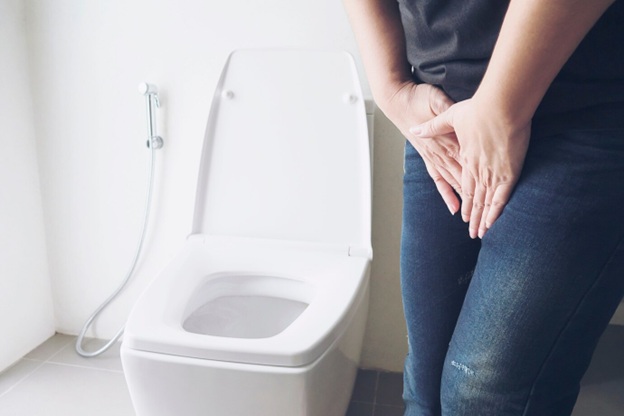Urinary tract infections, or UTIs, are common and can cause significant discomfort. If you’ve had one, you know they’re not pleasant. For some, they occur frequently, leading to an array of issues. Understanding why these recurrent infections happen is vital to preventing them. By understanding the frequent UTI causes, individuals can enjoy better efficiency in managing their health. Knowing the ins and outs of these causes can lead to more proactive, rather than reactive, healthcare solutions.
Understanding the Basics of UTIs
A urinary tract infection is an infection in any part of the urinary system, which includes the kidneys, bladder, ureters, and urethra. Most infections affect the lower urinary tract — the bladder and urethra. Common symptoms include a strong urge to urinate that never seems to go away, a burning feeling while urinating, cloudy urine, and urine that smells bad. Types of UTIs include cystitis, which affects the bladder, and urethritis, which affects the urethra.
These infections can be disruptive, often causing discomfort in daily activities. Going to the bathroom can become dread-filled due to the burning sensation or urgency to urinate. This can lead to interruptions in work, school, or even leisure activities, causing a significant impact on daily life. Knowing the basics helps one recognize symptoms early and seek timely treatment.
The Prevalence of UTIs: A Global Perspective
UTIs affect millions globally each year. They are especially common in women, with over 50% experiencing at least one UTI in their lifetime. In India, UTIs are frequent, affecting a substantial percentage of the population annually. Globally, women are more likely to suffer from these infections due to anatomical differences. Understanding these statistics underscores the importance of being aware of frequent UTI causes and prevention methods.
Anatomy of the Urinary System: A Gateway to Understanding UTIs
The urinary system is vital for removing waste and balancing bodily fluids. It consists of kidneys, ureters, bladder, and the urethra. In women, the shorter urethra makes it easier for bacteria to reach the bladder, increasing the risk of UTIs. Additionally, the close proximity of the urethra to the anus can further elevate the risk. Recognizing these anatomical realities helps appreciate why UTIs are more common in women and emphasizes the need for preventative care.
Lifestyle and Dietary Contributors to Frequent UTIs
Personal hygiene plays a role in the cause of frequent urine infections. Improper wiping and lack of cleanliness can introduce bacteria to the urinary tract. Meanwhile, dietary habits contribute significantly too. Drinking less water can increase the risk, as staying hydrated helps flush out bacteria. Certain dietary choices, like caffeine and spicy foods, can irritate the bladder.
Stress can also influence UTI occurrences. Stress weakens the immune system, making it harder to fight off infections. Therefore, managing stress through relaxation techniques can play a part in reducing UTI frequency. To prevent infections:
- Practice good personal hygiene.
- Stay hydrated.
- Monitor stress levels to keep the immune system strong.
Health Conditions Increasing Susceptibility to UTIs
Several health conditions make individuals more prone to UTIs. Diabetes, for instance, affects immunity and increases sugar levels in urine, feeding bacteria growth. Kidney stones can block the urinary tract, trapping bacteria. Hormonal imbalances can also make the urinary tract more susceptible to infections. If you’re experiencing increased UTIs, it is essential to consult a healthcare professional. Their guidance and diagnosis can address underlying conditions, helping manage and reduce recurrent infections.
How Hydration Influences UTI Prevention
Hydration is key in preventing UTIs. Clean and safe drinking water is vital, especially in regions where water quality is an issue, like some areas in India. Contaminated water can introduce bacteria. Ensuring safe water sources and using filters can mitigate these risks. Drinking plenty of water daily helps to naturally flush bacteria out of the urinary tract. This simple act of staying hydrated can significantly reduce the chance of infection, emphasizing why it’s a cornerstone of UTI prevention strategies.
Effective Prevention Tips for Managing UTIs
Several everyday practices can help manage and prevent UTIs. Regular urination is vital; don’t hold it in as it can promote bacterial growth. Choose clothing that minimizes irritation. Loose, breathable fabrics are best.
Diet plays a crucial role too. Eating foods high in vitamin C and probiotics can help prevent infections. However, be cautious with caffeine and spices, as they can irritate the bladder. To prevent frequent UTI causes:
- Urinate frequently and don’t hold it.
- Wear breathable clothes.
- Incorporate vitamin C and probiotics into meals.
Recognizing Serious Symptoms: When to Seek Help
Some UTI symptoms require immediate medical attention. High fever, severe pain in the back or side, and vomiting should not be ignored. It’s crucial to consult a doctor for any severe symptoms. Ensuring regular check-ups is key to preventing chronic UTIs. In India, accessing healthcare services is essential for prolonged well-being. Regular consultations help catch and treat recurrent UTI problems early.
Conclusion
Understanding and managing UTIs is critical for health. By knowing the main points about the frequent UTI causes, you can take charge and prevent these infections from recurring. Proactive steps in lifestyle, hygiene, and hydration can effectively manage symptoms and prevent future occurrences. Always remember the importance of consulting with healthcare professionals for proper diagnosis and treatment. Being aware and taking action ensures better health and a happier lifestyle.
For expert care and treatment of UTIs, visit Hyderabad Urology and Andrology. Our team is dedicated to providing the best solutions for your urological and andrological health.


